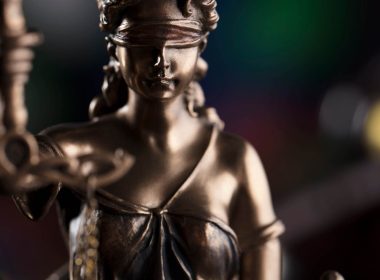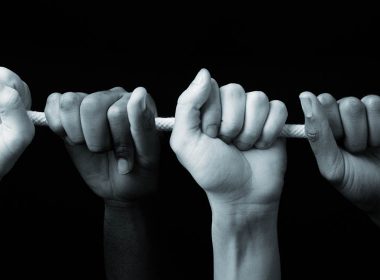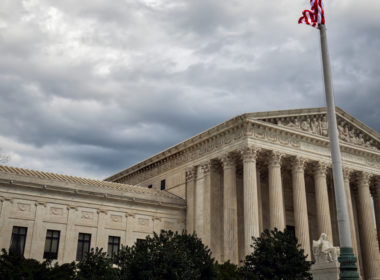The recent presidential elections in Brazil divided a country in a way unknown since the military dictatorship. Two weeks after the result, the dust still isn’t settling, and the same history that led to the 6 January uprising in the US is threatening to repeat itself in the biggest democracy in South America.
When Brazilian presidential candidate Luiz Inácio Lula da Silva was declared the winner in South America’s presidential election on 30 October, this did not signal the end of a contentious and heated race. It took incumbent president Jair Bolsonaro two days to comment on the results in a press conference, where he gave instructions on the start of the process of handing over power, but never admitted to conceding (though his response did fall short of contesting the result of the elections). Given the spectre of the 2019 US election, there are concerns that a case similar to the 6 January uprising may soon hit the world’s fifth-biggest democracy.
TRIGGER WARNING: This article mentions rape. LSJ advises you discontinue reading if this topic causes distress. Contact NSW Sexual Violence Helpline – 1800 424 017 if you need any support or assistance. Always dial 000 in emergencies.
A recap
Having served as Brazil’s president from 2003 to 2011, Lula enjoyed a solid reputation resulting from the positive mark left on the country by his social policies, and from his being in office during the period of one of Brazil’s best economic performances. Since then, though, his government has been involved in a series of scandals, including “Operation Car Wash” – the criminal investigation into corruption in the country’s state-owned oil company Petrogás, which quickly turned its scrutiny on the elected officials accused of covering said corruption. The result was the indictment and jailing of several government officials, including two ex-presidents, Michel Temer and Lula.
During almost two years of Lula’s imprisonment, the country saw the rise of right-wing populist Bolsonaro. Though Bolsonaro was first pegged as a different breed of politician, immune to the corruption of big money, it was with his inflammatory and divisive comments that he set his footprint on the country’s political landscape: first as a member of Rio’s Municipal Chamber, and, finally, as the most viable candidate to counter a rising left that was in direct conversation with the working class.
As with over 30 per cent of the Brazilian population, Bolsonaro is a devout evangelical. He climbed the ladder by attacking the LGBT community and asylum seekers and empowering traditional ideas of marriage. In one of the most controversial comments he made in 2014, he referenced another Federal MP as “so ugly she does not even deserve to be raped”.
Since Bolsonaro won the Presidential election in 2019, his term has received plenty of internal and international criticism. A climate-change denier, he oversaw a rise of 75 per cent in deforestation of the Amazon, triggering comments from countries like Norway, which committed to stop sending aid to the country if this practice were to continue. However, it was his handling of the pandemic that won him most of the criticism that came from his fellow Brazilians.
After downplaying the effects of COVID-19, Bolsonaro fired the Minister of Health, mocked people with breathing difficulties, and advocated for the use of hydroxychloroquine. At the height of the pandemic, Brazil led the world with the most cases per capita and saw the death of over 600,000 citizens.
Shortly after the pandemic reached its peak, Lula was exonerated when it was found that the judge who first condemned him did so without enough proof and under the influence of extreme bias. In his return to politics, Lula was Bolsonaro’s biggest nightmare – a popular leader who appealed to some of Bolsonaro’s supporters owing to his anti-elitist, pro-working-class sentiments. At the start of the campaign, over 54 per cent of the population considered Bolsonaro’s performance catastrophic.
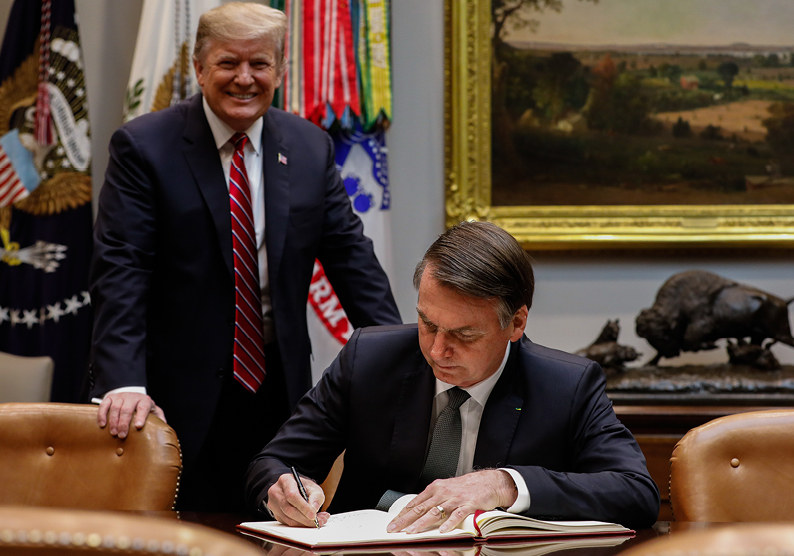
The election
The distance between the two candidates was minimal, as is becoming increasingly common in divisive elections. It was uncertain who would come out on top, until the first results began to show a trend. The campaign started with Lula in the lead by about 55 per cent, effectively meaning the ex-president was elected in the first round.
Bolsonaro’s team followed with a smear campaign centred around discrediting Lula’s legitimacy by citing the (unproven) corruption charges and the fact that he had incurred an – albeit unlawful – prison sentence. At the same time, the campaign widened the rift between religious conservatives and progressives, similarly to the situation during the American Presidential campaign. Evangelical pastors in lower class communities actively campaigned in the name of Bolsonaro. A famous football player endorsed the president after having his tax evasion accusation shelved. The spectre of communism loomed, especially with the proximity of Venezuela, as an example of what could happen to the country if Lula’s party won.
From the start, Bolsonaro had been conflicted about the steps he would take in the event of losing. He said he would admit retirement if it were “God’s will I do not win”, but quickly went back to signalling that he would not accept any outcome that was not a victory for him. With his supporters adopting a language similar to that of the Trump supporters, and continually inciting violence, it was unclear how they would react to the possibility that their candidate would not win.
After a first round that did not decide the presidency, with a right-wing majority in the Brazilian Senate, the two candidates went on alone for the second round, with a clear lead for Lula.
A couple of cases of disruptions were reported on the day of the election. Police officers stopped buses coming from working-class suburbs from reaching the voting centres, and, famously, an elected Bolsonaro official threatened another citizen with a gun in broad daylight after a comment about her time as a sex worker.
Still, after only a couple of hours, Lula was pronounced the winner, and will be sworn in on 1 January 2023. But even as part of the country was celebrating there was an expectation that something quite different could happen afterwards.
It did not take much for a series of misinformation and conspiracy theories to spread via WhatsApp channels about the legitimacy of the elections and about a bigger plan in motion to re-instate Bolsonaro as the legitimate president. These theories were similar to those peddled by Trump supporters in 2019 after the final result, designed to catch the opposition off guard by claiming that that result was fraudulent.
This uncertainty was heightened by Bolsonaro’s action in taking a whopping two days to comment on the elections, and in not conceding; on the contrary, he ordered the transition process to continue.
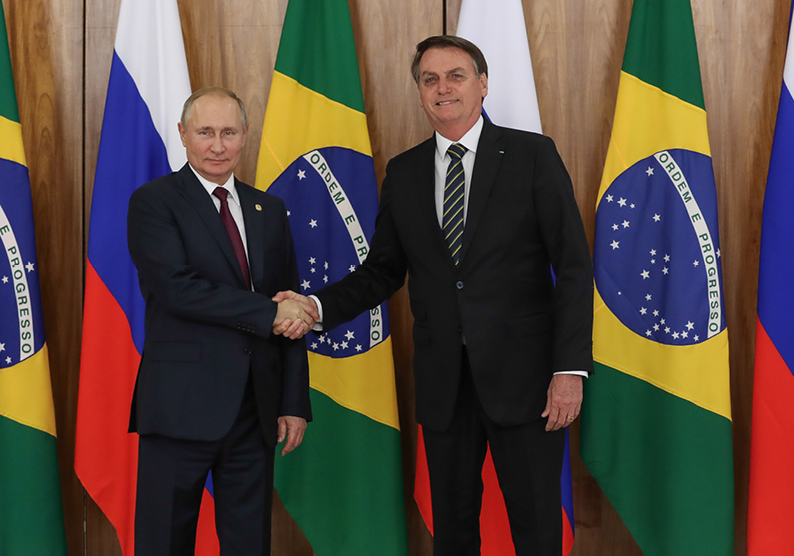
What now?
Since Bolsonaro’s press conference he has been strangely quiet, even if his supporters have not. There are reports within Brazilian media that he fell short of delegitimising the election due to pressure from his party. Lula’s powers as president will be minimal as the right-wing parties maintain a majority in the Senate and the chamber of deputies, with Bolsonaro’s party as the leading party in both houses.
At the same time, it is not hard to see Bolsonaro as happy with his supporters’ devotion. In the lead-up to the election, the murder of left-wing politician Marcelo Arruda by an outspoken Bolsonaro supporter garnered very tame comments by the then-president, who compared it to a simple dispute between two men, like a disagreement between soccer fans.
As we are getting closer to inauguration day, the country remains divided in its allegiance. Pro-Bolsonaro protests have been spreading across the country, presumably with the support of the police force, whose union has openly supported the incumbent president. Trucks in support of Bolsonaro have stopped traffic, particularly in and out of suburbs where Lula won, with further demonstrations scheduled for 15 November, a public holiday in the country to celebrate the republic. Bolsonaro’s ex-minister of culture, famous actress Regina Duarte, who was one of the loudest voices to dispute the results, called on social media for Lula’s supporters to mark their businesses with a red star.
The president remains silent, and unavailable for comments. Surprisingly, he was not present at the recent G20 summit, nor was Brazil requested to send a representative of Lula’s upcoming government.
The future is still uncertain, but the narrative has been scarily similar to that in 2019. There is still much misinformation being spread on social media channels, and overall discontent about legitimate media outlets. The transition to power may not be soft, but this difficult and troubling transition to power could be a reiteration of the issues western democracies could face in future elections. Less than a week after the American midterm elections, the Democratic Party celebrated a victory against candidates who cited fraud in the presidential election. However, the voices that amplified these attacks on the democratic process are still there, and relevant. According to the Washington Post, while 31 deniers lost their competitive races, seven won and eight remained outstanding. Their position in the 2020 race may have been the leading cause of the defeat. It could have been that Joe Biden’s relatively controversy-free presidency offered a welcome stability to voters, and the recent overruling of Roe v Wade scared voters from the conservative ticket. In reality, a Monmouth University poll saw that 6 in 10 Republicans still believe Joe Biden did not win fair and square.
Brazil is now a litmus test for the rest of the world. As Donald Trump makes his presidential bid official while continuing to call the 2019 elections fraudulent, his fans abroad could be galvanised by the American ex-President’s inflammatory ‘us vs them’ rhetoric. If Lula’s transition to power is smooth, this will signal to the rest of the world that democracy prevails against chaos and corruption. With a series of important elections happening between 2023 and 2024 worldwide, that’s a much-needed reassurance.


